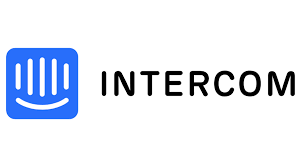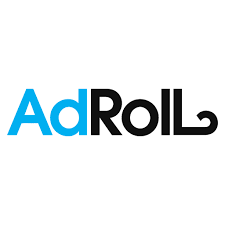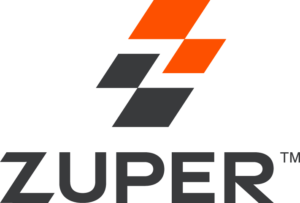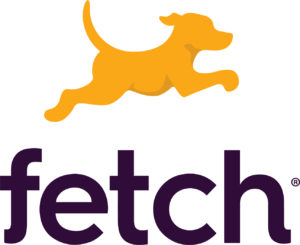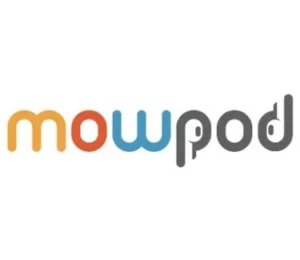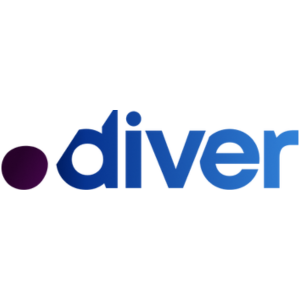LISTEN IN A POD APP
Filters
Ismael El-Qudsi | SocialPubli
AI’s role in finding the right influencers — Ismael El-Qudsi // SocialPubli
Ismael El-Qudsi, Co-founder and CEO of SocialPubli, explores AI for influencer marketing. Influencer marketing’s main issue today is the prevalence of people buying followers or using bots. Fortunately, AI can detect potential fraud within influencer metrics, such as fake followers or inflated engagement rates, helping brands avoid collaborations with influencers who may not deliver genuine…
Play PodcastSterling Jackson | Aspire
Why brands and creators are investing more into video content — Sterling Jackson // Aspire
Sterling Jackson, Head of Marketing at Aspire, explores what factors influence online brand trust. Video has a unique ability to engage viewers and convey a brand's message in a way that other forms of content simply can't match. Plus, with the ability to repurpose video content across multiple channels, it's a cost-effective investment in any…
Play PodcastVivien Garnès | Upfluence
Becoming a marketing influencer — Vivien Garnès // Upfluence (copy)
Co-CEO of Upfluence, Vivien Garnès, wraps up discussions on maximizing influencer marketing campaigns. Becoming an Influencer isn’t as easy as many make it seem online. Many hours must be spent producing high-quality content that can win the attention of consumers and the brands they love. Today, Vivien breaks down the process of becoming an Influencer.
Play PodcastVivien Garnès | Upfluence
Becoming a marketing influencer — Vivien Garnès // Upfluence
Co-CEO of Upfluence, Vivien Garnès, wraps up discussions on maximizing influencer marketing campaigns. Becoming an Influencer isn’t as easy as many make it seem online. Many hours must be spent producing high-quality content that can win the attention of consumers and the brands they love. Today, Vivien breaks down the process of becoming an Influencer.
Play PodcastVivien Garnès | Upfluence
How to monetize your influencer marketing campaigns — Vivien Garnès // Upfluence (copy)
Upfluence Co-CEO, Vivien Garnès, discusses tips to build an effective influencer marketing campaign. Current statistics indicate an increase in marketing budget allocations to influencer marketing. However, measuring their effectiveness still challenges marketers. Today, Vivien talks about how you can monetize your influencer marketing campaigns.
Play PodcastVivien Garnès | Upfluence
How to monetize your influencer marketing campaigns — Vivien Garnès // Upfluence
Upfluence Co-CEO, Vivien Garnès, discusses tips to build an effective influencer marketing campaign. Current statistics indicate an increase in marketing budget allocations to influencer marketing. However, measuring their effectiveness still challenges marketers. Today, Vivien talks about how you can monetize your influencer marketing campaigns.
Play PodcastVivien Garnès | Upfluence
Tips for getting the best work from influencers — Vivien Garnès // Upfluence
Vivien Garnès, Upfluence’s Co-CEO, highlights methods to maximize your influencer marketing strategies. Keeping your influencers motivated means that they can produce the best content for your brand. This motivation doesn’t necessarily have to be monetary and can take many forms. Today, Vivien talks about tips for getting the best work from influencers.
Play PodcastVivien Garnès | Upfluence
Matching influencers and your audience — Vivien Garnès // Upfluence
Upfluence’s Co-CEO, Vivien Garnès, offers his tips for maximizing your influencer marketing strategies. All influencers were not created equally. You must invest the time to understand what your audience wants and the influencers who are able to provide that content to them. Today, Vivien talks about matching influencers with your audience.
Play PodcastVivien Garnès | Upfluence
Matching influencers and your audience — Vivien Garnès // Upfluence (copy)
Upfluence’s Co-CEO, Vivien Garnès, offers his tips for maximizing your influencer marketing strategies. All influencers were not created equally. You must invest the time to understand what your audience wants and the influencers who are able to provide that content to them. Today, Vivien talks about matching influencers with your audience.
Play PodcastVivien Garnès | Upfluence
Should you build an influencer campaign? — Vivien Garnès // Upfluence
Vivien Garnès, Co-CEO of Upfluence, discusses ways to maximize your influencer marketing strategies. In an age where more people are shopping online, brands must consider the benefits of influencer marketing. As online competition mounts, where you decide to spend your marketing dollars is becoming more integral to success. Today, Vivien talks about whether you should…
Play PodcastAbout Marketing Channel: Influencer Marketing
What is Influencer Marketing?
"A social-first discipline."
Influencer marketing is a component of social media marketing wherein people or organizations leverage social media to give influential endorsements, review products or share industry expertise. Influencers are content creators who grow their followings through routine content creation. Followers are often consumers seeking more information about a brand or product.
The purpose of influencer marketing is to encourage, or influence, behavior in followers. Influencers achieve this by cultivating an internet personality to build and attract audiences. Desired user behaviors range from purchasing a product to engaging in word-of-mouth marketing.
Why is Influencer Marketing Impactful?
Audiences are growing increasingly aware of what social media advertising campaigns look like, making it harder to obtain conversions. Influencer marketing is a powerful tool marketers can utilize to avoid the trappings of traditional advertising. Influencer marketing campaigns appear more authentic to audiences, as most influencers build their followings through honest, thorough reviews.
Working with the right influencer can significantly boost your marketing efforts and increase consumer brand awareness. Influencer campaigns are known for their high impact and their influencer networks are vast resources. Savvy marketers leverage the power of influencer marketing in their strategies to increase their brand's reputation and expand their influence.
Who is an Influencer?
Influencers range from everyday people acting as brand ambassadors to celebrity influencers with massive followings. They can be bloggers, industry experts, journalists or academics. They can work in any industry and have massive audiences or smaller, niche follower groups.
Celebrity influencers are considered mega-influencers who leverage their influential film and TV careers in partnership building. Celebrity endorsements are critical wins for many digital marketing strategies, which elevate brands from obscurity to success overnight.
The influencer title can be applied to anyone working with brands or operating within marketing. Influencers carefully craft their images to convey a specific lifestyle using products, interests and apparel. Products for influencer reviews are often obtained through e-commerce partnerships or are gifted free products simply for mentioning brands in Instagram posts.
What are Followers?
Follower count is a key metric used in influencer marketing analytics to measure an influencers realm of influence. Follower demographics vary by social platform, but the most engaged audiences are Millennials and Gen Z.
Influencers gain followers through their content, engaging personalities and ability to connect with them. An influencer's status can easily change, and evaluating an influencer's professionalism is a vital strategy to utilize influencer marketing successfully.
Like celebrities, influencers need to carefully manage their image and personas. Negative interactions on social media and bad behavior can easily tarnish their reputation and, by association, partnered brands.
Brand marketers must carefully research an influencer's background, their practices and how they engage with followers before letting them represent their brand. Otherwise they risk endangering their brand's reputation and risk losing followers. Agencies will often interview influencer's extensively before partnering them with a client to ensure
Social Media
Social media channels are bloggers and vloggers primary tool for reaching, and building, their followings. Although influencers existed before social media, influencer marketing campaigns heavily rely on social media platforms.
Social media influencer content is typically user-generated and is posted directly on their profile. Widely used influencer social networks include:
- Instagram - Instagram influencers are the most prolific. The platform's focus on visual content and creative options makes it easy for celebrity and micro-influencers to use. Instagram is also a great influencer network sourcing tool. Brands can easily approach influencers with massive followings or others with more niche audiences to collaborate.
The introduction of Instagram Reels is another tool influencers are leveraging in their user-generated content efforts. Reels is similar to TikTok's creative tools and indicates Instagram is aiming to compete with the popular and controversial platform.
- Twitter - Although Twitter is a media-rich social media platform, it lacks the content versatility Instagram posts provide. Twitter is best used for directly engaging 1-to-1 with other users' accounts. Other followers can see direct responses between influencers, which can lead to partnership building or engaging collaborations.
Video platforms are another powerful tool that is integral to social media influencers.
- YouTube - YouTube influencers, often called "YouTubers," are often vloggers known for reviewing products in a variety of different niches. The most commonly reviewed products are cosmetics and technology.
YouTube is an excellent influencer marketing tool as creators can gain revenue through ads placed before and throughout their videos. The intuitive platform also gives creatives more agency to independently create vlogs and other visual content outside of traditional marketing methods.
The platform works well with other social media, which helps social media influencers add more visual elements to other channels. Celebrities, macro-influencers and nano-influencers can easily reach their desired target audiences with YouTube.
- TikTok - Like YouTube, TikTok's most popular feature is its video creation tool. Influencer marketing campaigns on TikTok involve influencers making or live-streaming videos to promote brands or products.
Traditional marketing doesn't work well on the platform whereas user-generated content presents greater value. The more creative users are, the more likely their content will go viral.
Types of Influencer Content
Influencer content is an essential component of content marketing. The common types of influencer content you'll encounter are:
- Blog posts (sponsored or unsponsored)
- Guest posts (or social media takeovers)
- Sponsored social media content
- Brand ambassador programs
- Livestreams
- Podcasts
These types of content are commonly used in marketing campaigns. The difference between marketing and influencer marketing is who's actually creating the content. In marketing it's either an internal team or an agency creating the campaigns whereas influencer campaigns are led by an influential individual.
Influencer Marketing Agencies
Influencer marketing is a rapidly growing and changing industry. The faster it grows the more difficult it becomes for marketers to manage influencer campaigns. Industry growth has led to the emergence of influencer marketing agencies.
Influencer marketing agencies assist company marketing departments by managing the various end-to-end aspects of influence marketing. They help companies save time, identify opportunities for long-term success and improve overall performance with data-driven strategies.
They utilize the power of influencer marketing platforms and software to successfully monitor and manage influencer programs and campaigns.
Agencies are useful for:
- Sourcing and connecting your company with social media influencers.
- Monitoring and managing social influencer relationships.
- Identifying fake followers and accounts.
- Generating real-time reports.
- Boosting engagement using data-driven reports and strategies.
- Maintain continuity with influencer marketing campaigns.
- Creating contracts for copyright, licensing and privacy policies.
Types of Influencer Marketing Agencies
Types of influencer marketing agencies range from full-service influencer marketing agencies to comprehensive digital marketing agencies offering a full suite of services. Influencer agencies are best for creating high-performing influencer marketing strategies whereas marketing agencies focus on strategies that impact all aspects of digital marketing.
A selection of active influencer marketing agencies and analytics companies include:
- The Influencer Marketing Factory
- Viral Nation
- LYFE Marketing
- Socialyte
- TapInfluence
- HireInfluence
- Traackr
- Tomoson
- Mediakix
Reputable agencies apply data-driven strategies to spur growth. If a strategy isn't working, they examine the data and will tweak a campaign to ensure they're meeting key KPIs. Most agencies work remotely but some offer the benefit of sending a member of their team to work in-house with your marketing department. Full-service agencies typically offer an in-house benefit although smaller, or boutique agencies can offer the option as well.
Influencer Marketing Resources
Influencer marketing as we know it is a relatively new field that is rapidly changing by the minute. The best way to stay alert of the latest influencer trends is to consult reputable online resources.
An example is Influencer Marketing Hub. They provide a complete guide into the latest influencer trends and overall state of the influencer industry. Influencer Marketing Hub also offers influencer marketing courses ranging from Pinterest Marketing 101 to a free Instagram masterclass.
Read MoreRead Less
Sponsors of the MarTech Podcast




